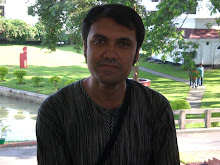The Canadian Press
Former prime minister Hasina wins Bangladesh's 1st election in 7 yearsBy Julhas Alam
Associated Press Writer
DHAKA, Bangladesh - Bangladeshi voters handed the alliance led by former prime minister Sheikh Hasina a landslide victory in results announced Tuesday, as the troubled South Asian country returned to democracy after two years of military-backed rule.
The voting Monday was the most peaceful in decades - a stark contrast to the failed elections of 2007, which dissolved into street riots and prompted emergency rule. But Hasina's opponents were already alleging widespread vote-rigging and fraud.
Election Commission secretary Humayun Kabir said Hasina's alliance won a two-thirds majority in parliament after votes in most districts had been tallied.
"This has been a very free and fair election," Kabir told reporters at his office in the capital of
However, Rizvi Ahmed, a senior official in the party led by former prime minister Khaleda Zia, said it would challenge the result later Tuesday.
Ahmed claimed there were incidents of ballot-rigging and forgery at 220 polling stations, including election officials registering fake votes. He also accused police of pressuring people to vote for Hasina's candidates and said his party has lodged formal complaints with the Election Commission.
Kabir said the commission would investigate the complaints.
Later Tuesday an international observer group said the vote appeared to be fair.
"The (election) process appears to have yielded a result that accurately reflects the will of Bangladeshi voters," said Constance Newman, the head of a 65-person delegation from the International Republican Institute, a Washington-based group that promotes democracy.
Newman said that "political parties, candidates and citizens should accept the results and work together for a peaceful transition of power."
Hasina asked her supporters not to take to the streets to celebrate the victory, fearing potential clashes with rivals.
The voting marks the country's first election in seven years, but with no fresh faces - and with both leading candidates facing corruption charges - many fear the vote will just mean a return to the corruption, mismanagement and paralyzing protests of previous attempts at democracy.
Hasina and Zia are heirs to Bangladeshi political dynasties and fixtures of the political scene. Zia was elected prime minister in 1991, Hasina in 1996, and Zia again in 2001.
Though bitter rivals, their parties campaigned on similar platforms of reducing corruption and controlling inflation. One of the few policy differences is that Hasina's party is seen as relatively secular and liberal, while Zia has allies among Islamic fundamentalists.
Analysts said Hasina's longer absence from power had worked in her favour, together with Zia's poor record in controlling inflation, a key issue.
According to the latest tallies, Kabir said Hasina's alliance won 261 out of the 300 parliamentary seats. Zia's alliance won 30, while independent candidates and the smaller Liberal Democratic Party took four.
Dozens of former ministers in Zia's government lost, including chief of the Islamic fundamentalist Jamaat-e-Islami party, Motiur Rahman Nizami.
Voter turnout was high, with about 80 per cent of the 81 million eligible voters casting ballots, according to Kabir.
Last year, both Zia and Hasina were jailed on corruption charges, which they dismissed as politically motivated. They were freed on bail and reassumed positions as the heads of their respective parties, the two largest in the country.

No comments:
Post a Comment